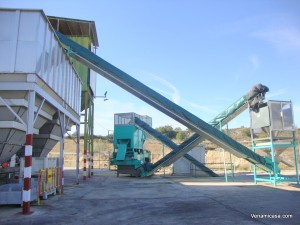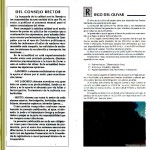Bad growing conditions are the main reason for defects in oils.
The traditional olive cultivation practices at Mediterranean valleys should be made with minimal environmental impact, to remain largely traditional. The most common amendments and fertilization, tillage and soil management, irrigation, using low toxicity phytosanitary products in order to control the most famous olive pest, the “olearic fly” (which produces a high degree of acidity and a defect known as “worm”) and disease (fungus).
 The Almazara Molino del Motrotón has a standards of care and olive harvest which are distributed among more than 2.100 farmers, also members of the Cooperative, they cultivate and own a total amount of 139.000 olive trees distributed in 2400 Ha. It requires a good olive cultivation and careful collection and transportation.
The Almazara Molino del Motrotón has a standards of care and olive harvest which are distributed among more than 2.100 farmers, also members of the Cooperative, they cultivate and own a total amount of 139.000 olive trees distributed in 2400 Ha. It requires a good olive cultivation and careful collection and transportation.
Harvesting is done in the optimum ripening period (80% black olives and the rest half ripe) in order to acquire the specific organoleptic properties of the olive.
Olives are picked during the day, between November and December and the first weeks of January. In Valencia province we usually use manual sticks to shake the branches with which boughs are beaten (the skill of the farmers is vital to do not damage the olive tree) or just harvest by hand. Both system are very traditional in order to remove the fruit from the tree, not entailing always damage the quality of the olive.
To develop the Extra Virgin Olive Oil, the olives that have fallen to the ground should never be collected since the oil obtained from them would have an earthy flavour and a damp taste if it had rained. Also if those olives had remained on the ground for several days, the oil obtained from them would have a rusty flavour. The olives dried on the tree produce an oil with a wooden flavour.
The olives can be exposed to very cold temperatures, producing an “unfruity” and extremely sweet oil, and a unpleasant flavour known as “frozen olive”.
All olives are collected from the tree into plastic nets previously placed under the tree.
At dusk all farmers return to the Almazara to leave the fruit of their labor, transporting their daily harvest with aerated boxes of 20 kg. During transport to the oil mill the olives should suffer the minimum damage possible from knocking, bruising, squashing, etc. because this could cause the fruit to ferment. The oil obtained from them would loose its fruity aroma, be replaced by an overripe aroma and would produce an unpleasant vinegary tasting oils.
Turís has a great tradition and dedication to the cultivation and care of the olive tree, the more than 2100 farmers who cultivate their fields, they do it with care and passion. The Extra Virgin Olive Oil is unic, it has a great quality.
To learn more:
The Spanish Mills for olive oil production: La Almazara.
The olive tree growth at Mediterranean valleys.
Olive Varieties at Mediterranean valleys of the area of Valencia.
The Extra Virgin Olive Oil Process Elaboration at Almazara Molino del Motrotón:
- Delivery, cleaning, washing and weighing.
- Preparation of the paste
- Separation and filtration
- Packing. Extra Virgin Olive Oil Brands:
- Valle de la Hoya.
- Marquesat del Magre.
- Molino del Rio.








